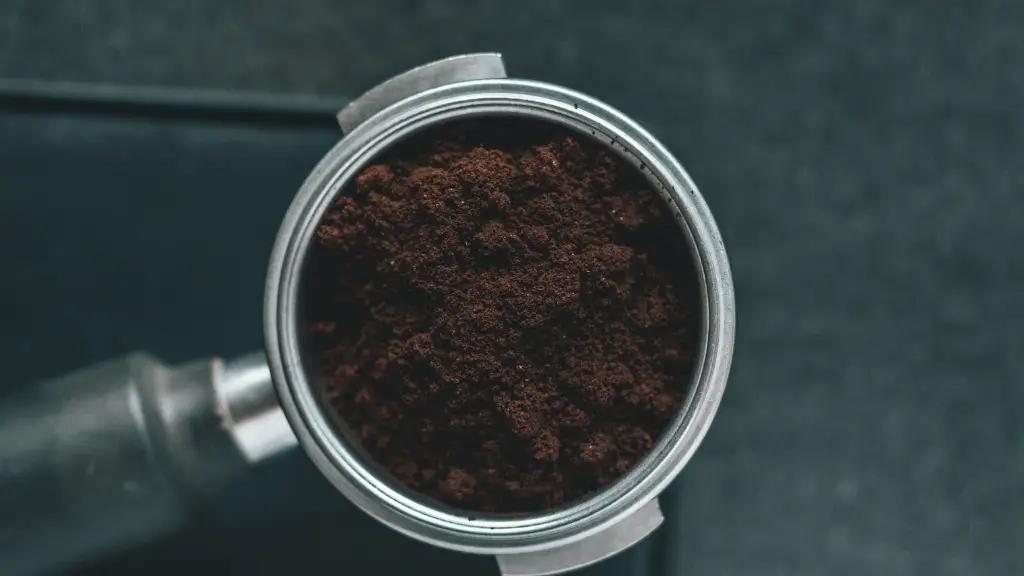Caffeine is a chemical compound that is found in many plants, including coffee beans. Caffeine is a stimulant and has many effects on the body, including increased alertness and wakefulness. While caffeine has many benefits, it can also be a detriment if consumed in large quantities. Caffeine is addictive and can cause sleeplessness, anxiety, and restlessness.
Decaffeinating coffee beans is a process that removes the caffeine from the beans. There are a few different methods that can be used to decaffeinate coffee beans, but the most common method is called the Swiss water method. This method uses water to extract the caffeine from the beans. The beans are soaked in water until the water absorbs the caffeine. The beans are then dried and roasted. This method is 100% chemical-free and results in a delicious cup of coffee.
The process of decaffeinating coffee beans is a lengthy one that involves multiple steps. First, the coffee beans are soaked in hot water in order to release the caffeine. Next, the water is filtered to remove the caffeine. Finally, the coffee beans are dried and roasted to remove any remaining traces of water.
How is coffee naturally decaffeinated?
Ethyl acetate is a naturally occurring ester that is found in fruits and vegetables such as bananas, apples and coffee. When used as a solvent, ethyl acetate is circulated through a bed of moist, green coffee beans in order to remove some of the caffeine. The solvent is then recaptured in an evaporator and the beans are washed with water.
I was really impressed to learn about the Swiss Water Process for decaffeinating coffee. I didn’t realize that it was possible to do it without using any chemicals. I think this is a great method because it is much healthier for us and the environment. I’m definitely going to try to find coffee that has been decaffeinated using this process in the future.
What is the healthiest way to decaffeinate coffee
The Swiss Water Process (SWP) is a decaffeination process that uses water to remove caffeine from coffee beans. It is considered to be an environmentally friendly and chemical-free process. Many coffee drinkers believe that the SWP is the best way to decaffeinate coffee because it does not alter the flavor of the coffee beans.
Decaf coffee may have some side effects if consumed in large quantities. It can increase bad cholesterol levels and aggravate rheumatoid arthritis and acidity. It may also interfere with iron absorption and cause headaches and drowsiness. However, these side effects are rare and coffee is generally safe to consume.
Is the decaffeination process harmful?
The decaffeination process is safe and all four methods are safe. The beans are washed, steamed, and roasted at temperatures that evaporate the liquids used in decaffeination.
It’s no secret that coffee has plenty of health benefits. But did you know that these benefits mostly apply to regular coffee, and not decaf? That’s right – regular coffee has been shown to improve mental health, increase metabolic rate, enhance athletic performance, and lower the risk of liver damage, among other things. So if you’re looking to get the most out of your cup of joe, stick to the regular stuff.
Does all decaf coffee have Formaldehyde?
There are actually several ways to decaffeinate coffee, and none of them involve formaldehyde! The most common methods are using water or steam to extract the caffeine, or using chemical solvents like methylene chloride or ethyl acetate. No matter which method is used, the goal is to remove as much caffeine as possible while retaining the coffee’s flavor and aroma.
This coffee has been decaffeinated using the Swiss Water Process, which is a completely chemical-free process. The coffee beans are soaked in water until they reach their desired level of caffeine reduction. This coffee is a dark roast, meaning that the beans have been roasted for a longer period of time, giving them a fuller body and intense flavor.
How does McDonald’s decaffeinate their coffee
McDonald’s coffee is decaffeinated using the Swiss water method, which is a completely natural decaffeination process that uses only water and no chemicals. So, if you’re looking for a cup of coffee that is both delicious and responsibly sourced, McDonald’s coffee is a great option.
Dunkin’ Donuts decaf coffee is processed using water. The coffee is first soaked in hot water to extract the caffeine. Then, the coffee is filtered through activated charcoal to remove the caffeine. This process results in a cup of coffee that is 99.9% caffeine-free.
Are there any benefits to drinking decaffeinated coffee?
Decaf coffee is coffee that has had the majority of its caffeine removed. Decaf coffee still contains some antioxidants and other beneficial compounds, making it a healthier choice than regular coffee. The antioxidants present in decaf coffee help to neutralise free radicals, reducing oxidative damage and preventing diseases such as Type 2 diabetes, heart disease, and cancer. Decaf coffee also contains magnesium, which acts as a shield against diabetes.
Coffee is known to have anti-inflammatory properties, and decaffeinated coffee is likely to have similar effects. However, more research is needed to confirm this. In the meantime, drink up!
Is decaf coffee OK for your heart
We’re always told that too much coffee is bad for us, but it turns out that moderate coffee consumption can actually be beneficial for our health! A new study has found that drinking two to three cups of coffee per day is associated with a lower risk of heart disease and early death in adults aged 40 to 69. So go ahead and enjoy your cup of joe worry-free!
The most common methods of decaffeination involve using chemical solvents, usually ethyl acetate or methylene chloride. In the direct method, the coffee beans are steamed and then rinsed repeatedly with the chemical solvent to flush away the caffeine.
Why does decaf coffee keep you awake?
If you’re having trouble sleeping, it’s best to avoid caffeine altogether. However, if you do need a little boost to get through the day, stick to mornings and early afternoon. Avoid consuming caffeine after 3 p.m. to give your body enough time to metabolize it before bedtime.
In 1999, the FDA concluded that trace amounts of caffeine in decaf coffee are too minuscule to affect your health. The agency strictly limits its presence to no more than 10 parts per million, or 0001 percent, of the final product.
Is decaf worse than regular coffee
Decaf coffee is not harmful to health. It may even share some of the health benefits of regular coffee.
The potential carcinogen acrylamide is found in coffee, but recent studies have found that dietary acrylamide intake is not associated with cancer risk. It’s OK to drink your morning cup of joe, but remember not to drink too much.
Conclusion
The main process used to decaffeinate coffee beans is called solvent extraction. In this process, coffee beans are first soaked in hot water to make them expand. Then, they are rinsed with a solvent (usually methylene chloride or ethyl acetate) that removes the caffeine. Finally, the beans are rinsed with hot water again to remove any traces of the solvent.
There are a few ways to decaffeinate coffee beans, but the most common and effective way is through the use of chemicals. The chemicals used in this process are typically activated charcoal and ethyl acetate. The coffee beans are soaked in water and then exposed to the chemicals, which remove the caffeine from the beans.





